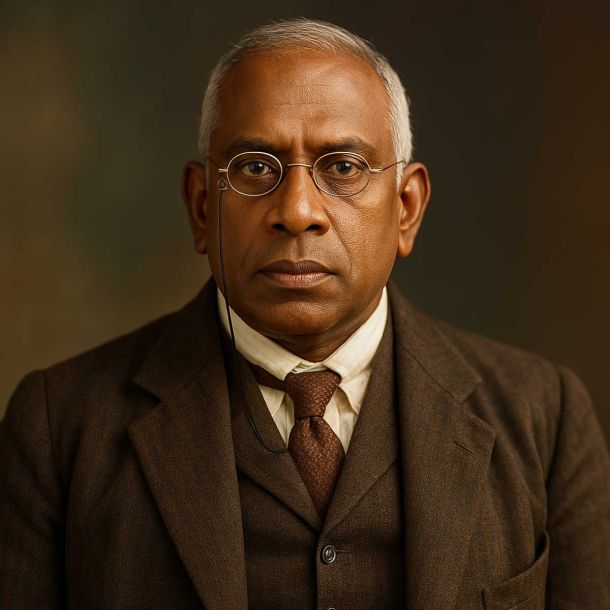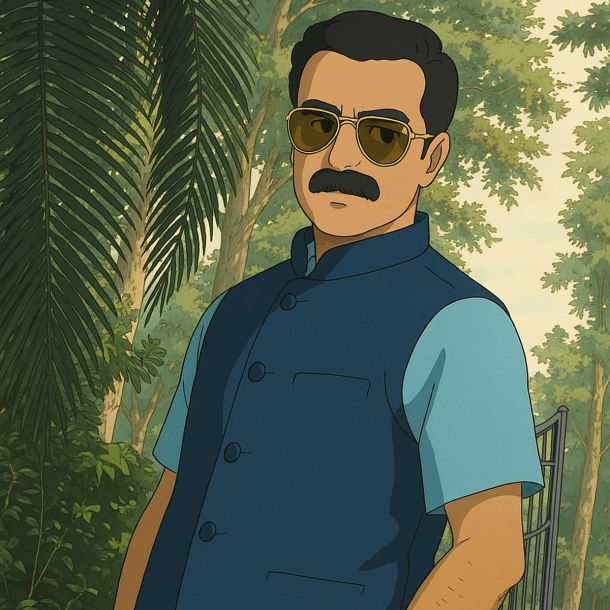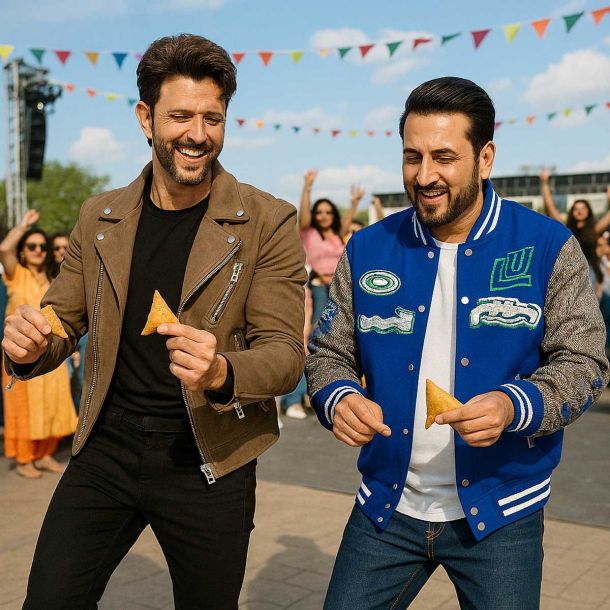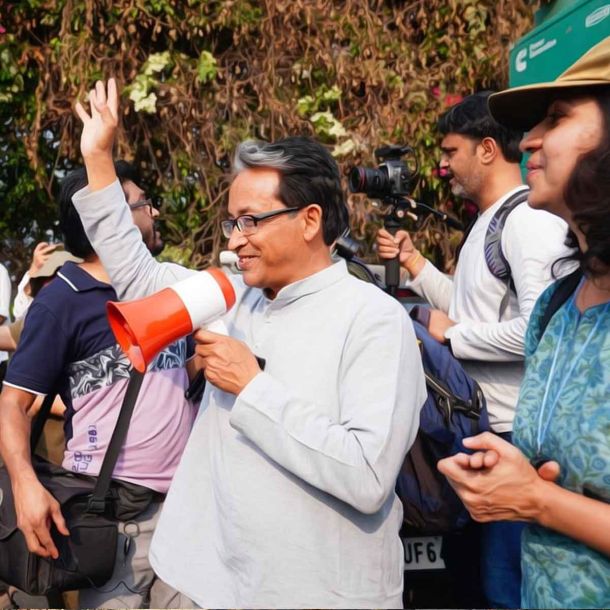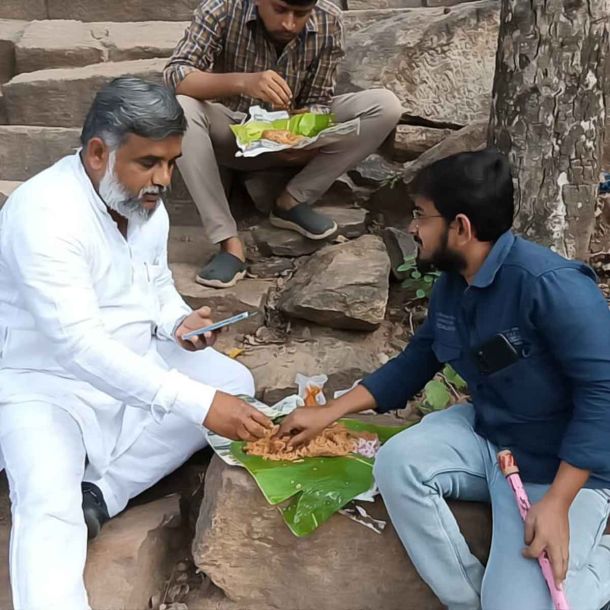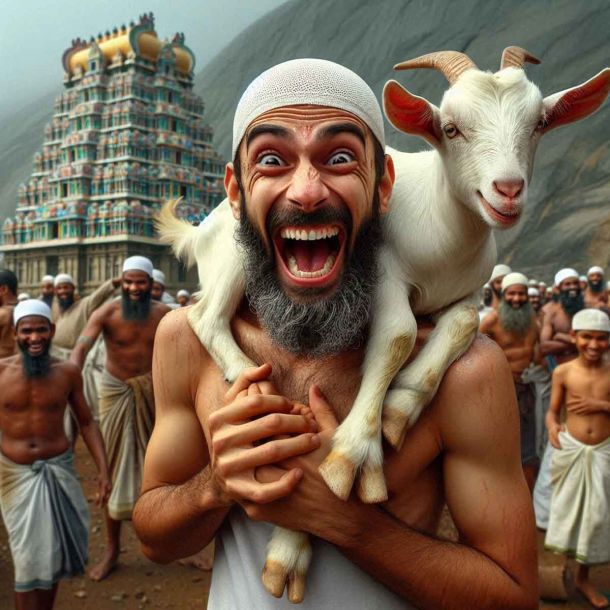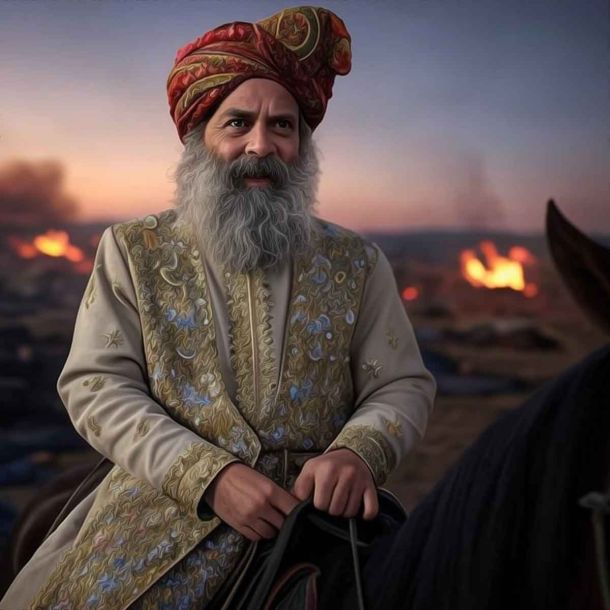MORE COVERAGE
Professor of Political Science at Columbia University, Professor Lisa Anderson regards America’s wars of liberation in Afghanistan and Iraq as “an assault on the entire region”: The 101 Most Dangerous Academics in America
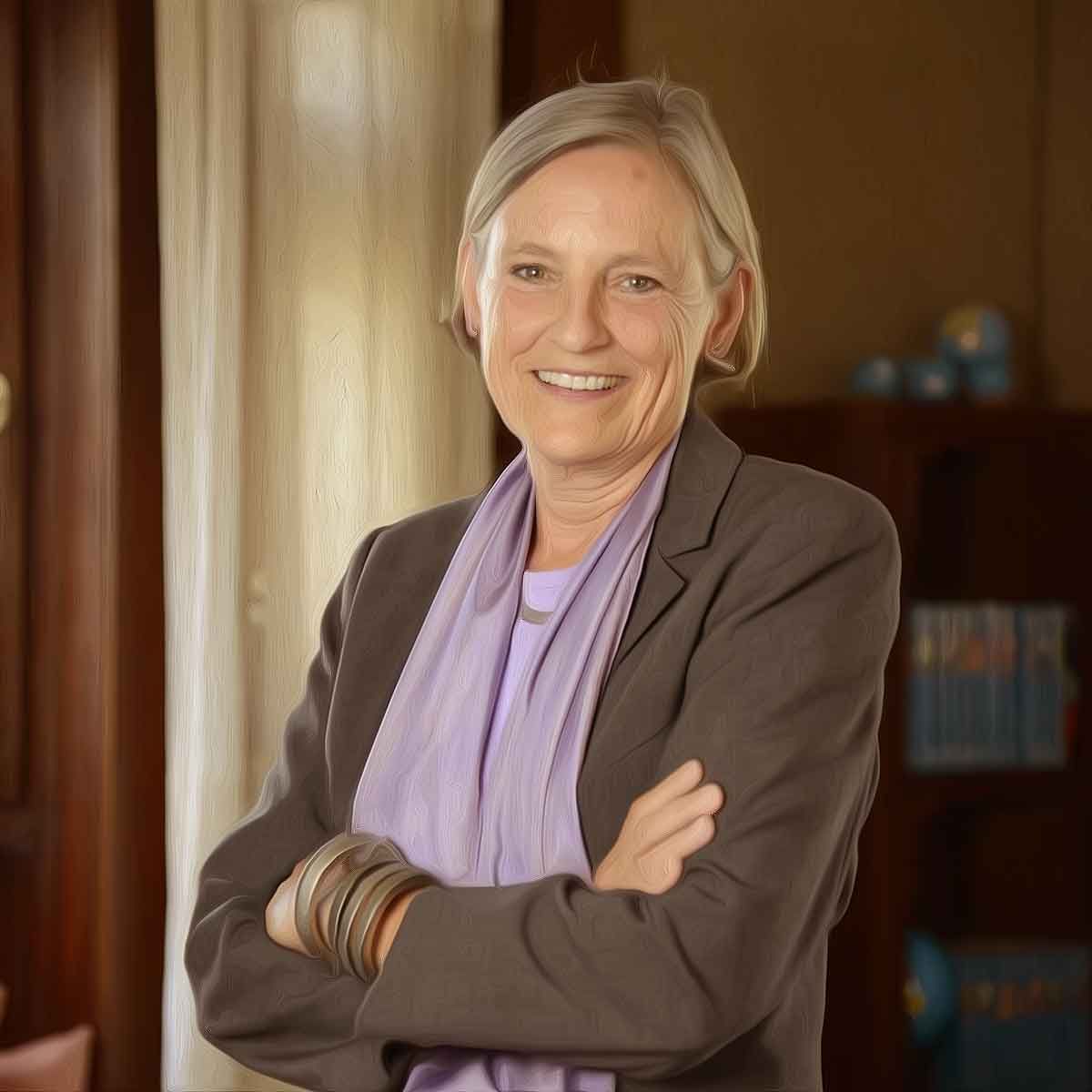
When The Professors was first published in February 2006, it was greeted by cries of outrage from the academic Left. The author was denounced as a reincarnation of Joseph McCarthy and his book as a “blacklist,” although no evidence existed to support either claim and both were the opposite of the truth.
Far from being a “blacklist,” the text explicitly—and in so many words—defended the right of professors to teach views that were unpopular without fear of political reprisal. The author also publicly defended the First Amendment rights of Ward Churchill, the most notable case of a professor under attack for his political views.
Attitudes like these may explain the unscholarly responses that The Professors elicited. Professor Nelson’s review in the AAUP’s official journal, Academe, began with this injunction: “Please ignore this book. Don’t buy it. Don’t read it. Try not to mention it in idle conversation.” These were strange instructions for an educator, but not so strange for a political activist outraged by the fact that his agendas were being scrutinized.
To combat the author (no other verb will do) the American Federation of Teachers (AFT) organized a coalition of left-wing organizations called “Free Exchange On Campus.” When The Professors appeared, the union issued a press release: “Free Exchange On Campus ... has condemned a new book that attacks individual professors for their personal political beliefs. The book is The Professors: The 101 Most Dangerous Academics in America, by David Horowitz, who is also the author of the so-called Academic Bill of Rights legislation making its way throughout the states. The book is essentially a blacklist of academics, says Free Exchange On Campus, and is based on inaccurate and misleading information.”
Any fair-minded reader will see that The Professors does not “attack individual academics for their personal political beliefs,” nor does it suggest that any professors should be fired for their political beliefs. It cannot be described by any reasonable standard, therefore, as a “blacklist.” In the introduction, the author states that he did not design the text to attack professors’ political beliefs: “This book is not intended as a text about left-wing bias in the university and does not propose that a left-wing perspective on academic faculties is a problem in itself. Every individual, whether conservative or liberal, has a perspective and therefore a bias. Professors have every right to interpret the subjects they teach according to their individual points of view. That is the essence of academic freedom.”11 A defense of unpopular professorial views could hardly be more clearly expressed.
Yet, the cynical misrepresentation of The Professors as a McCarthy “witch-hunt” is the substance of virtually all the hostile responses to this book. Not a single academic who condemned The Professors bothered to address its argument, or demonstrate a familiarity with the 17,000 words of explanatory material. Instead, critics read their own agendas into the profiles and respond to whatever they had made up.
The profiles describe professors’ political beliefs, and the author occasionally expresses an opinion about professorial statements that are overtly racist or anti-Semitic, or simply incoherent. But the clear (and limited) purpose is to demonstrate that the individuals are political activists before they are scholars. 12 The introductory essay explains that there are four specific “disturbing patterns of university life” to which the author objects. None of these patterns involve the expression of unpopular views inside or outside the classroom. All are viewpoint neutral. The four problem areas are: “(1) promotion far beyond academic achievement; (2) teaching subjects outside one’s professional qualifications and expertise for the purpose of political propaganda; (3) making racist and ethnically disparaging remarks in public without eliciting reaction by university administrations, as long as those remarks are directed at unprotected groups, e.g., Armenians, whites, Christians and Jews; and (4) the overt introduction of political agendas into the classroom and the abandonment of any pretense of academic discipline or scholarly inquiry.”
The Professors do identify several academics (Bettina Aptheker, Angela Davis, Manning Marable, and Harry Targ) as “Communists.” But this is a reference to their actual membership in the Communist Party, certainly a relevant aspect of the resumes of professionals whose expertise is ideas. Two professors (Bill Ayers and Bernardine Dohrn) are described as terrorists, but this is also an accurate and literal description. Both were leaders of the Weather Underground, whose relevance to their academic activities the body of the text makes clear.
The Professors also describe tenured professors who are crude racists and anti-Semites (Amiri Baraka, Hamid Dabashi, and Leonard Jeffries, among others); convicted torturers (Ron Karenga); supporters of Islamic terrorism (Shahid Alam and others); and bearers of fraudulent academic credentials (Ward Churchill, Michael Vocino). Since professors are hired through an elaborate system of professional standards and review, these cases demonstrate that the system is broken. That is the purpose of collecting them as profiles.
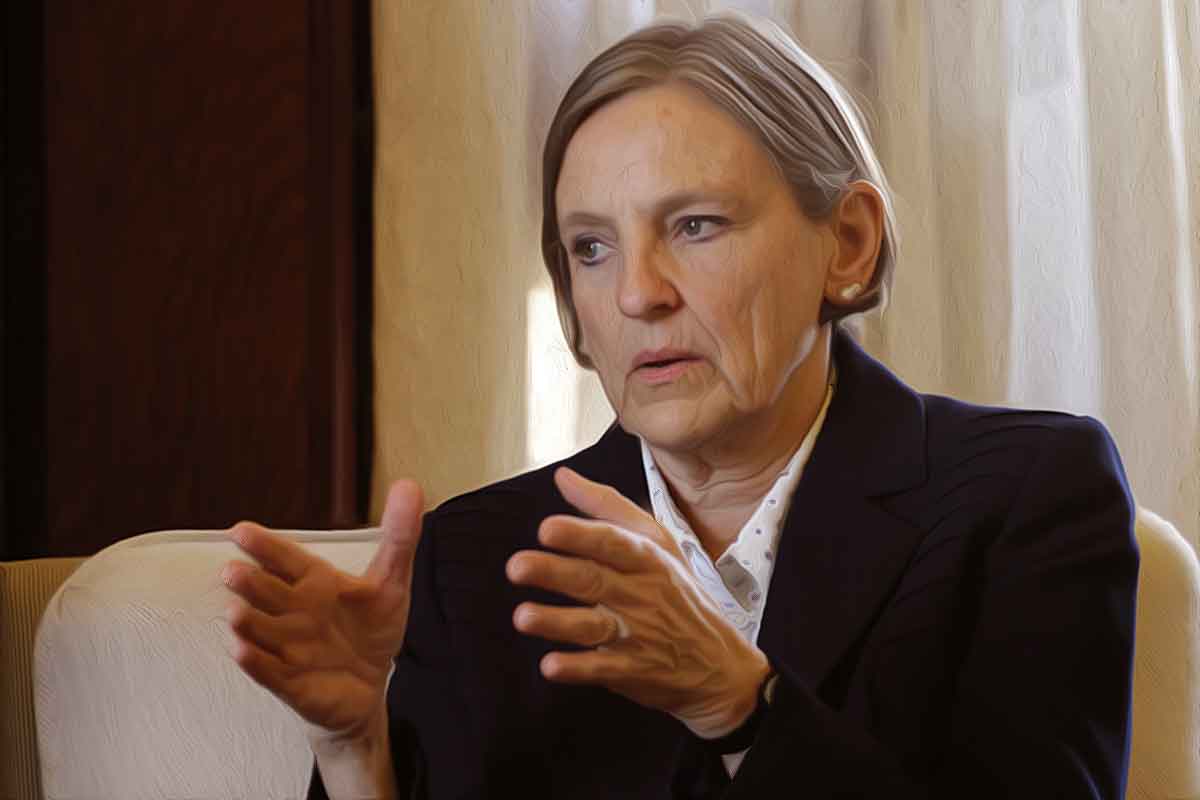 |
Professor Lisa Anderson, Columbia University
— Professor of political science, Columbia University
— Dean of Columbia’s School of International and Public Affairs
— Regards America’s wars of liberation in Afghanistan and Iraq as “an assault on the entire region.”
A faculty member at Columbia University since 1986, political science Professor Lisa Anderson is the former president of the Middle East Studies Association. Described in her university biography as “one of this country’s most eminent scholars of the Middle East and North Africa,” Professor Anderson is the author of just one book, The State and Social Transformation in Tunisia and Libya, 1830–1980. She currently serves as the dean of Columbia’s School of International and Public Affairs and co-chair of Human Rights/Middle East. She is also a member of the Council on Foreign Relations, the Carnegie Council on Ethics, and the Social Science Research Council.
Professor Anderson’s most recent achievement was raising $4 million, almost entirely from Arab sources, for an “Edward Said Chair in Middle Eastern Studies.” Though Said was not a scholar of Islam or the Middle East, a literary scholar and celebrated anti-Israel polemicist, Anderson found nothing peculiar in naming the chair after him. She kept the sources of the chair’s funding secret for as long as possible, despite public criticism and even though New York State Law requires that such information be reported when it involves foreign funds. To occupy the chair, she selected Professor Rashid Khalidi, a longtime supporter of Yasser Arafat and one-time activist with the Palestine Liberation Organization, who depicts Israel as a “racist” nation that imposes “apartheid” on Palestinians. Professor Anderson reserved the chair for Khalidi until he could extricate himself from his position at the University of Chicago. She could not “honestly think of a better person,” she said, “to recruit to Columbia.”
Professor Anderson was also instrumental in helping Joseph Massad, whom she had served as a Ph.D. advisor, to secure a teaching post at Columbia. Massad believes that the “Jewish state is a racist state that does not have the right to exist,” that Palestinian suicide bombers are noble “anti-colonial resistors,” and that there are “stark” similarities between the plight of World War II-era Jews in Nazi concentration camps and contemporary Palestinian terrorists in Israeli prisons.
During Professor Anderson’s tenure as dean, the School of International and Political Affairs has held numerous events condemning the state of Israel. In September 2002, for instance, the School of International and Public Affairs co-sponsored an African Studies Institute seminar called “South African Conversation on Israel and Palestine,15 which was designed to liken Israel’s current social structure to the system of racial apartheid, even though the Arab citizens of Israel (more than a million strong) enjoy more rights than the citizens of any Arab state.
Professor Anderson is a fierce critic not only of Israel but also of the United States. She views the 9/11 attacks as the Muslim world’s response to “the fact of American political power in the world and the fact of inequitable distribution of power within the United States.” When writing about the “war on terror,” Professor Anderson places those words in sneer quotes to convey her belief that the term is nothing more than a pretext for American empire-building by means of serial invasions. Casting the U.S. as an unprovoked aggressor in this war, she characterizes the American military operations in Afghanistan and Iraq as an “assault on the entire region” and an attempt “to rewrite the map of the entire area.”
References:
- The Professors: The 101 Most Dangerous Academics in America - David Horowitz
- Some of these attacks have been described and analyzed in the author’s Indoctrination U: The Left’s War Against Academic Freedom. They are also described in articles the author has written, including “The Strange Dishonest Campaign Against Academic Freedom,” frontpagemag.com, and “Intellectual Muggings,” frontpagemag.com
- See also: Professors Anidjar, Brand, J. Cole, De Genova, Massad
- Research: Hugh Fitzgerald17
 Support Us
Support Us
Satyagraha was born from the heart of our land, with an undying aim to unveil the true essence of Bharat. It seeks to illuminate the hidden tales of our valiant freedom fighters and the rich chronicles that haven't yet sung their complete melody in the mainstream.
While platforms like NDTV and 'The Wire' effortlessly garner funds under the banner of safeguarding democracy, we at Satyagraha walk a different path. Our strength and resonance come from you. In this journey to weave a stronger Bharat, every little contribution amplifies our voice. Let's come together, contribute as you can, and champion the true spirit of our nation.
 |  |  |
| ICICI Bank of Satyaagrah | Razorpay Bank of Satyaagrah | PayPal Bank of Satyaagrah - For International Payments |
If all above doesn't work, then try the LINK below:
Please share the article on other platforms
DISCLAIMER: The author is solely responsible for the views expressed in this article. The author carries the responsibility for citing and/or licensing of images utilized within the text. The website also frequently uses non-commercial images for representational purposes only in line with the article. We are not responsible for the authenticity of such images. If some images have a copyright issue, we request the person/entity to contact us at satyaagrahindia@gmail.com and we will take the necessary actions to resolve the issue.
Related Articles
- Professor M. Shahid Alam, Northeastern University: The 101 Most Dangerous Academics in America
- A Strange New World - Road was clear for Indira Gandhi, nothing could stop her and there seemed no opposition to her regime, 'The New York Times' marvelled at how the JP movement had just melted away
- Asst. Professor of Comparative Literature at Columbia University, Gil Anidjar is an Anti-Israel activist, apologist for Islamic radicalism and identifies “good teaching” with pro-Palestinian activism: The 101 Most Dangerous Academics in America
- Professor of Feminist Studies at University of California, Bettina Aptheker describes her teaching philosophy as “revolutionary praxis”: one of her course syllabi describes lesbianism as the “highest stage of feminism”
- Professor Hamid Algar, University of California, Berkeley: The 101 Most Dangerous Academics in America
- “Dharma is law in its widest sense—spiritual, moral, ethical and temporal": How Chanakya's Arthashastra shaped the Telling of Ancient Indian History and should be read simply for its sheer brilliance in the area of statecraft and economics
- "Aum Mahadevaya Namaha - The Great Universal God": Sanatana Dharma forces human mind, time and time again, to accept the fact that Divine is all that exists, both clean and unclean, pure and impure, auspicious and inauspicious
- “Instead of causing chaos and rocking someone else’s boat, you need to row your own”: Prof Berry, a strong advocate of racial preferences in employment & education, said “Civil Rights laws were not passed to give civil rights protection to all Americans”
- "Crumbling Chronicles, their stories yearn to be retold": Each intricately carved stone horse in the Pir Panjals carries a profound secret. Once symbols of Bharat's grandeur, now overshadowed by indifference, and their plea for acknowledgment grows louder
- "To win this war, we need a commander in chief, not a professor of law standing at the lectern": Prof. Barash is not a trained historian, economist, or sociologist but a psychologist, while his co-author Professor Webel is a philosopher, let's teach Hate
- The surprising and continuing influence of Swami Vivekananda, the pied piper of the global yoga movement
- "Hindus have a tendency to dip their foot in self-destructive behavior": Hindu elite shouts slogan of sarva-dharma- samabhãva whereas Muslim claims, "Allah has mandated lands of the infidels to his last prophet, in turn, has bequeathed them to the Ummah"
- “Who says exactly what they’re thinking? What kind of a game is that?”: Committed Marxist, Prof. Berlowitz teaches “resistance” as in, “Privatization must be resisted,” - only a Marxist could make the connection between resisting privatization and peace
- "Purpose of creation of man, according to Islam, is that he should worship Allah": As there is one Allah, one Guide, one Book, there is also one Prayer, caught and fixed in a single formula, Islam has all ideological ingredients of imperialism in any age
- "Hindu school of History needed": A call for a new narrative amidst Diverse Historical Interpretations, contrasting views of Communist Historians and Aligarh Apologists, to provide a comprehensive understanding of medieval India's intricate past
Related Articles
Twitter Coverage
Satyaagrah
Written on
Satyaagrah
Written on
Satyaagrah
Written on
Satyaagrah
Written on
Satyaagrah
Written on



